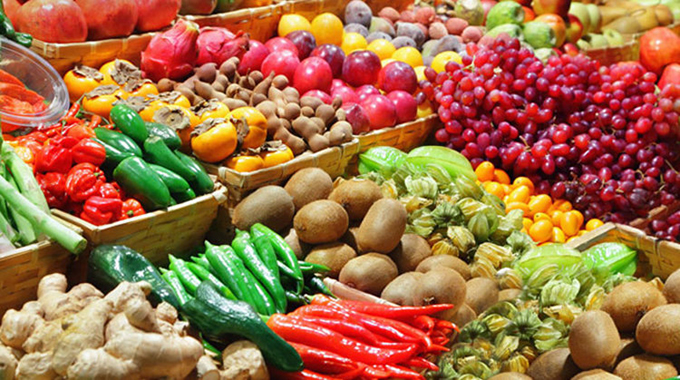Import substitution: Stakeholders target 234 615ha sunflower

Edgar Vhera Agriculture Specialist Writer
THE country’s import substitution thrust is gaining traction with the Government and various players along the sunflower value chain targeting to plant to jointly plant 234 615 hectares of the oilseed in the forthcoming 2022/23 cropping season.
Chief director Agricultural Advisory and Rural Development Services Professor Obert Jiri revealed this yesterday saying: “This coming season, Pfumvudza/Intwasa programme is targeting sunflower production on 124 615ha of land. The National Enhanced Agriculture Productivity Scheme (NEAPS) and Agriculture and Rural Development Authority (ARDA) have set targets of 5 000ha each for the crop,” said Prof Jiri.
Private sector on the one hand, is targeting to plant 100 000 ha of sunflower.
“We are contracting farmers from almost all of the country’s provinces for sunflower production towards meeting our target. We are providing five kilogrammes of sunflower seed for a hectare per farmer. Farmers can grow up to 20 hectares. The seed is for free, hence no deductions will be made on the eventual earnings after selling the produce,” said Agri Value Chain commercial manager Mr Siddhant Deshmukh.
This is an initiative of Pure Oil Industry in association with Agri Value Chain with Parrogate, as the lead player in this sunflower production programme.
The contract has no fixed pre-planting sunflower price but it will be determined at the time of marketing and farmers are assured of cash payment upon delivery of sunflower.
“Farmers will get cash on delivery with the price for sunflower seed being determined by market forces. We will be buying at our various premises like Chegutu, Sanyati, Checheche, Gweru, Glendale, Rushinga, Bulawayo, Chinhoyi, Mutare, Masvingo and Rusape,” continued Mr Deshmukh.
An agricultural extension specialist with the Ministry of Lands, Agriculture, Fisheries, Water and Rural Development, Mr Kennedy Mabehla pointed out that sunflower was an essential raw material for oil as well as stock feed industries.
“Increased sunflower production under Pfumvudza/Intwasa is meant to address low production over the years and ensure that local value adders have access to raw materials to ensure self-sufficiency in oil production,” said Mr Mabehla.
Chief agricultural extension specialist with the same ministry Mrs Shamiso Chikobvu highlighted the importance of good agronomic practices for good sunflower yields.
“Sunflower needs between 200 to 250 kgs of Compound L basal fertiliser and 100 to 250 kgs of Ammonium Nitrate (AN) per hectare. Soil testing is recommended to determine the correct amount of fertiliser to apply. Sunflowers are drought tolerant and can be successfully grown in semi-arid areas like Natural Regions three, four and five,” she said.
She added that sunflower was now a priority crop under the Pfumvudza/Intwasa Programme. The Government has since requested the processing industry to support local production of 40 percent of their raw material requirements through joint ventures and contract farming arrangements.
The area under sunflower production increased from 24 717ha in the 2019/2020 season to 31 502ha in the 2021/2022 season with the total production marginally rising from 9 446 to 11 117 tonnes respectively over the same period.
The period 1988 to 1994 saw the largest area planted to sunflower at an average of 129 368ha and 0, 42 tonnes per hectare per year in area and yield respectively.
The area planted to sunflower has been on rise since 2018 from a low figure of 8 928ha to a high of 31 502ha in 2022, a giant 253 percent increase though it is still about a quarter of the 1988 to 1994 average.
According to the second-round crop and livestock assessment 2021/22 season, sunflower production was estimated at 11 117 tonnes, a 22 percent decrease from 14 198 tonnes obtained in the 2020/2021 season. The crop yield was low as a result of late planting and early cessation of the season across the country.
However sunflower production under Pfumvudza/Intwasa was estimated at 850 tonnes at an average yield of 0, 77 tonnes per hectare.
To spruce up production in the 2022/23 season, sunflower has been deemed a mandatory crop for each household in higher rainfall areas as well as lower rainfall areas.
Though sunflower product imports have generally been decreasing over the years, the country substituted it with increased soya bean product imports, which have been rising over the years thereby negating the import substitution objective of the Government.
If the country cuts down on sunflower product imports and substitute them with increased soya bean products imports chiefly for the manufacture of cooking oil, there is no benefit to the country but rather the exporting of foreign currency and jobs outside the country.
In 2021 alone the country imported soya bean and sunflower products worthy US$288 million.








Comments